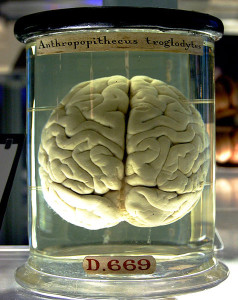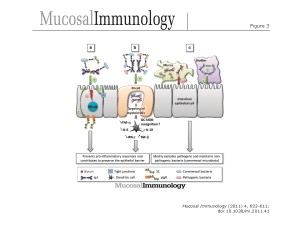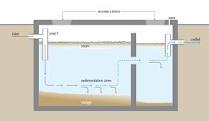Microbiome Microbiota Probiotics Brain Health
This topic – microbiome microbiota probiotics brain health – is the biggest rave right now in the medical field. But is it a new topic or just another “Johnny come lately” by conventional medicine to something natural medicine has been addressing for centuries? The latter is the case. This is important to know, but not new news. Science has just come up with more details and deeper explanations. Not a bad thing, but in my mind not a great sign that medicine is making great advances. These things were ignored and covered up because they did not fit the pharmaceutical model of treatment. Those of us with many decades of natural medicine experience have been fighting an uphill battle with the vast majority of MDs – they have berated us to our patients when we prescribed these effective approaches.
At any rate, what is the big commotion?
Did you know that there are bacteria, viruses, fungi, parasites, molds and other critters besides animals that influence your health? Of course you do. I first heard about the use of “good bacteria” over 50 years ago. I watched my father break up a pack of brewer’s yeast and flush it down our toilets at home. He explained that the bacteria help to break down our “poop” faster in the septic tank.
For those of you who don’t know, a septic tank is a buried tank to convert sewage into harmless water. People in the city don’t have their own septic tanks – the city sewage treatment system does that for you. In the country, though, a septic tank is the advanced way to safely manage human waste. It is a big step up from the pit at the bottom of an “outhouse.”
So, flushing brewer’s yeast into the septic tank allowed the yeast to break down the sewage so the septic tank would not back up. The third stage of the septic tank then released the final water into a “finger system” of pipes, buried underground, that led out to the yard to help water it.
Next, I learned about the healing power of good bacteria (also called flora) when travelling at age 25 in India and other parts of Asia. I started taking brewer’s yeast tablets I purchased in a “tin” in an apothecary in Columbo, the capital of Sri Lanka. The “digestive urgency” (also know as diarrhea) that was common for other travelers and myself was largely and beautifully controlled by taking 6-10 tablets per day. While others were having problems, my poops were relatively formed and healthy. Once again, good bacteria having a positive influence on the digestion of human waste output.
But how do we get from septic tanks to gastrointestinal health to brain health?
The role of gastrointestinal health in brain health is not new.
Studies dating back to the turn of the 20th century explored this connection. Ultimately, poor explanation, a concept of panacea, charlatanism, and a greater interest in cognitive theories ended the interest in the subject in 1920s-1930s. However, with better investigative techniques and new approaches, the connection was re-explored at the turn of the 21st century with astounding results. Alterations to the microbiome are now known to create physiologic adaptations responsible for changes in mood, behavior and neural plasticity. In this webinar you will learn about those physiological responses, what causes them, and how to fix it.
We start out life, after birth, with not a lot of this “flora” in our guts. By age one we have a similar mix as adults. That is over 1,800 genera of critters, 40,000 species (genus species, like “homo sapiens” humans), and 100,000,000,000,000 (one hundred trillion) single critter in all in our intestines. It weighs anywhere from 1 – 2 kg.
 Each of these critters has DNA, genetic material like we do in each of our cells. Combining all of the critters together, they have 100 times the genes found in the human genome. Thus, all this genetic material can have a positive or negative impact on your genetic material. It is all a matter of having the right balance of flora.
Each of these critters has DNA, genetic material like we do in each of our cells. Combining all of the critters together, they have 100 times the genes found in the human genome. Thus, all this genetic material can have a positive or negative impact on your genetic material. It is all a matter of having the right balance of flora.
Each person has her own “fingerprint” of flora that is unique to her. No one has the same mix. But there are general rules of thumb that we functional medicine doctors use in our treatments.
That is one of the specialty trainings we have to help you stay healthy. Not all probiotics are the same. Some are good for you as an individual. Others are a waste of money because they don’t even get to where they are supposed to go. Your stomach acid or bile kills them before they get to where they are supposed to go. And that is the job of your stomach acid and bile. But we use specific strains that we know will help you get the balance your intestine and brain needs. One excellent probiotic for general use is Ultra-Flora and you can get it through our portal at http://www.TheRedwoodClinic.Metagenics.com Call our office to get special code for ordering with free shipping. 510-849-1176
Stress Responses are Blunted by Good Bacteria
You have to have good bacteria in your gut for your stress response to not go crazy.
Imbalanced bacteria can cause liver pathology which can lead to negative brain responses.
 Imbalanced bacteria can lead to “leaky brain syndrome,” a breakdown of the blood-brain barrier and then changes in neurotransmitters. These include dopamine, serotonin, and others that effect mood and memory.
Imbalanced bacteria can lead to “leaky brain syndrome,” a breakdown of the blood-brain barrier and then changes in neurotransmitters. These include dopamine, serotonin, and others that effect mood and memory.
Imbalanced bacteria can also lead to autoimmune reactions.
What can cause imbalanced bacteria? Stress, environmental factors, and dietary factors. Gluten, dairy, food allergens, and others are the dietary factors. Medications can be part of the environmental factors.


